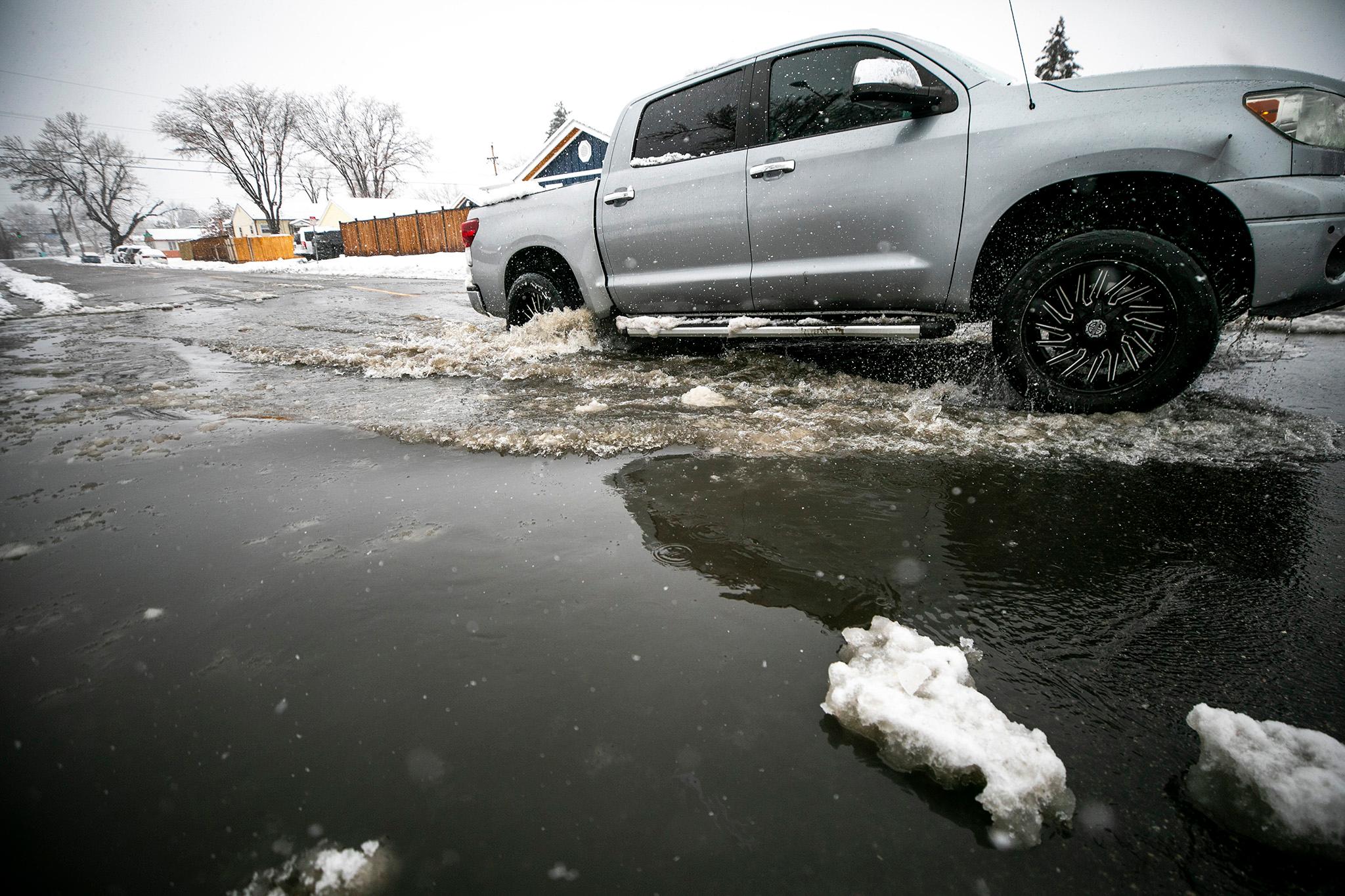
Winter 2024 was the warmest recorded in the United States in more than a century — and one of the warmest in Colorado, recent federal and state climate data show.
Average temperatures across the lower 48 from December 2023 through February were 5.4 degrees Fahrenheit above normal, the warmest meteorological winter — which is different than the calendar season that ends March 19 — in the National Oceanic and Atmospheric Administration's 130-year climate record, researchers with the federal agency said in a monthly report.
To give some perspective to those warm temperatures, which scientists said are largely fueled by the burning of fossil fuels around the world: Winter 2024 set new records in eight states and it was one of the 10th warmest for 26 other states, NOAA researchers said.
That includes Colorado.
In an email to CPR News, Assistant State Climatologist Becky Bolinger confirmed that Winter 2024 was Colorado’s 10th-warmest ever recorded. “Also, notably, it was warm and wet, which is a not-as-common category.”
The state only saw one significant cold wave all winter, data from the Colorado Climate Center show: The mid-January polar vortex that drove temperatures to a record-low -39.1°F in North Park near the Wyoming border.
- Colorado snowpack has rebounded, but it’s too early to promise a water win for rivers and reservoirs
- Climate change is erasing decades of air quality improvements. It’s also making Colorado’s air worse
- The Antarctic Ocean plays a critical role in regulating the world’s climate. Warming temps are throwing it off balance








